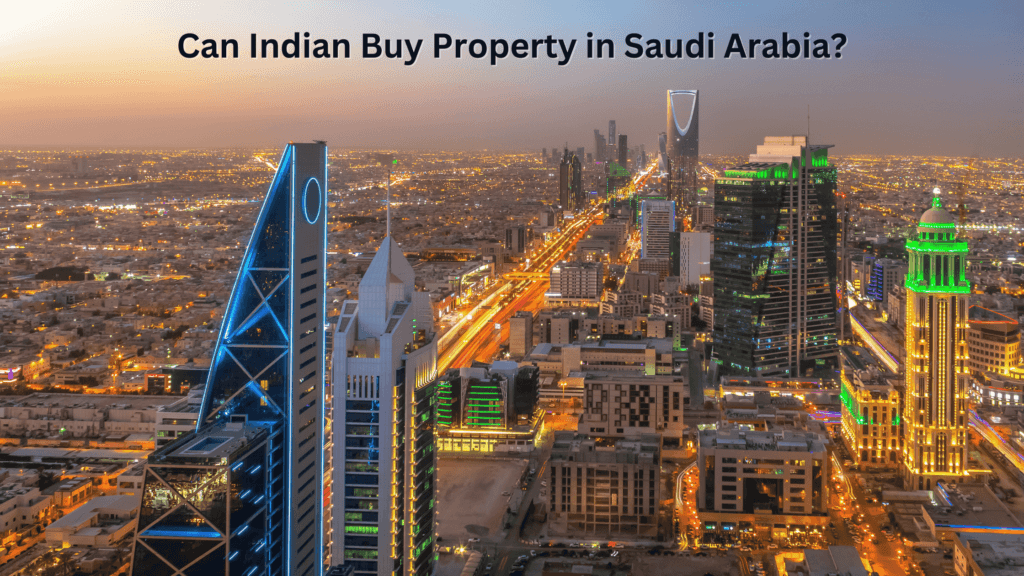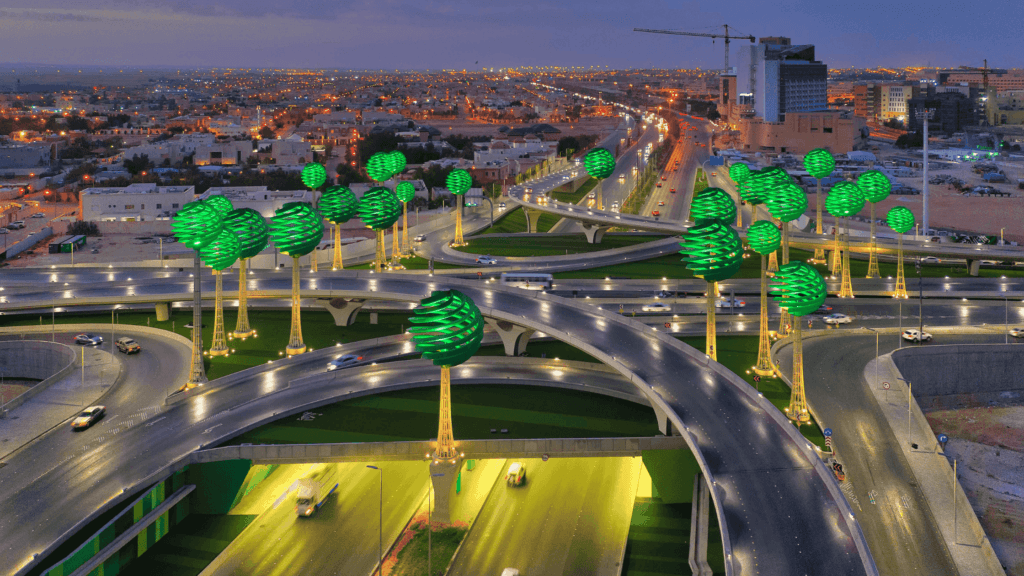Can Indian Buy Property in Saudi Arabia: A Guide to Navigating the Kingdom’s Real Estate Market
Saudi Arabia is undergoing a profound transformation under its Vision 2030 initiative, capturing global attention with ambitious projects aimed at diversifying its economy. The Kingdom is shedding its image of being solely oil-reliant and culturally conservative, opening up opportunities for foreign investors, including Indian nationals, particularly in its real estate sector. This guide outlines the opportunities, challenges, and processes involved for Indian buyers looking to invest or relocate to Saudi Arabia.
Read: Saudi Arabia’s Property Market
Vision 2030: Reshaping Saudi Arabia’s Real Estate Sector
Vision 2030 is Saudi Arabia’s long-term strategic plan to diversify its economy, reduce reliance on oil, and promote sectors like tourism, technology, and business. Mega-projects such as NEOM, a futuristic smart city, and The Red Sea Project, a luxury tourism destination, are central to this transformation. For Indian nationals, these developments offer enticing opportunities for real estate investments, due to:
- Proximity to India: Direct flights from major Indian cities like Mumbai, Delhi, and Bengaluru make Saudi Arabia an accessible option.
- Economic Growth: Saudi Arabia’s GDP is projected to grow by 4.2% in 2024, driven by economic diversification and rising tourism.
- Property Appreciation: Real estate values in major cities and emerging regions like NEOM are set to increase, making it an attractive long-term investment. ( A STORY OF TRANSFORMATION )
Read: Saudi Arabia’s Property Revolution
Can Indian Nationals Buy Property in Saudi Arabia?
Yes, Indian nationals can legally purchase property in Saudi Arabia, but the process comes with some restrictions and requirements.
Key Regulations for Foreign Buyers:
- Location Restrictions: Foreigners cannot purchase property in the holy cities of Mecca and Medina. However, cities like Riyadh, Jeddah, Dammam, and NEOM are open for foreign investment.
- Residential Use Only: Foreigners can typically buy one residential property for personal use. Commercial or rental use may require a partnership with a Saudi national or company.
- Special Permit Requirement: Indian buyers need to obtain a special permit from the Ministry of Interior. This process can take several months and requires documentation, such as proof of residency. ( Can a Foreigner Buy a Property in Saudi Arabia )
Why Saudi Property Appeals to Indian Buyers
Saudi Arabia’s property market presents a mix of opportunities and challenges for Indian investors. Cities like Riyadh and Jeddah are seeing rising property prices, driven by international business growth and a developing expatriate community.
- Riyadh: The political and economic hub, where residential properties in prime locations can cost between £1,200 and £1,800 per square metre.
- Jeddah: Offering a coastal lifestyle at relatively lower prices, ranging from £900 to £1,500 per square metre.
- NEOM: As Saudi Arabia’s flagship mega-project, NEOM is expected to have prices ranging from £2,000 to £3,500 per square metre, making it a futuristic and potentially high-reward investment.
Read: Saudi Arabia’s Luxury Real Estate Market
Financing Property in Saudi Arabia
While many property transactions are cash-based, Indian nationals can access mortgage options through local Saudi banks, albeit under stricter terms than those available to Saudi citizens. Some banks require a substantial down payment (around 30% of the property’s value) and longer approval timelines for foreign buyers. Indian buyers may find it advantageous to explore international mortgage services from Indian banks that operate globally. ( How to get a mortgage in Saudi Arabia | Expatica )
Legal Process for Indian Buyers
Buying property in Saudi Arabia involves navigating the local legal framework, based on Sharia (Islamic) law. Here’s a step-by-step guide:
- Identify the Property: Work with a licensed real estate agent familiar with foreign clients and Saudi property regulations.
- Apply for a Permit: Foreign buyers must obtain a special permit from the Ministry of Interior. This step can take several months, so start early and ensure all documentation is in order.
- Sales Agreement: Once the permit is approved and terms are agreed upon, a sales contract is drafted, covering the purchase price, payment terms, and any conditions.
- Final Payment and Transfer: After the final payment, the property ownership is officially transferred through the Saudi Land Registry, which can take several months.
Read: Saudi Property Expo 2024
Tax Implications and Ongoing Costs
Saudi Arabia has a relatively low tax burden compared to other countries. There is no personal income tax, and capital gains taxes are minimal. Buyers must pay a 5% property registration fee, based on the purchase price, as well as ongoing maintenance charges, typically 1-2% of the property’s value annually in gated communities or new developments.
Read: Income Tax in Saudi Arabia for Foreigners
Cultural Considerations for Indian Buyers
Though Saudi Arabia is becoming more open, it remains a deeply conservative society governed by Islamic law. Indian expatriates, especially those accustomed to a cosmopolitan lifestyle in cities like Riyadh or Jeddah, will find some familiar comforts but may need to adjust to the local customs. Respect for local norms, including dress codes, social interactions, and religious practices, is essential.
Read: Saudi Property Investments
Is Saudi Arabia Worth the Investment?
For Indian nationals, Saudi Arabia’s real estate market offers significant potential, driven by rapid development, ambitious projects like NEOM, and an increasing expatriate population. However, buyers must navigate a complex legal and regulatory environment. With the right approach, real estate investment in the Kingdom can be rewarding, whether for personal use or long-term growth.
For those considering entering the Saudi property market, now may be an ideal time as the Kingdom’s economy and real estate sector continue to evolve in alignment with Vision 2030.










